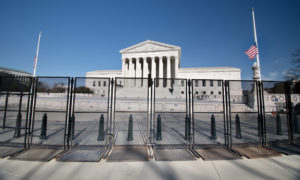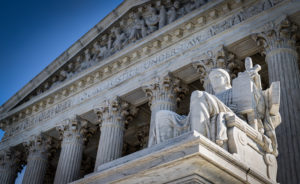Is Chevron Deference Still Alive?
Three takeaways follow from the Supreme Court’s recent opinions ignoring Chevron v. NRDC.
Court Allows Administration to End “Remain in Mexico”
DHS has discretion to end its policy requiring noncitizens to wait in Mexico pending their immigration proceedings.
A Dangerous, Even if Expected, Opinion on Climate
The Supreme Court casts a shadow across the regulatory state in opinion limiting EPA’s ability to fight climate change.
Firearms Regulation through Constitutional Litigation
The Supreme Court applies a contested history of firearms regulation to evaluate the constitutionality of firearms restrictions.
A Risk-Based Approach to AI Procurement
Organizations should tailor contract requirements for procured AI systems based on levels of risk.
Constitutional Commitments to Aspirational Principles
The majority’s reasoning in Dobbs v. Jackson Women’s Health entrenches the historical failures of the United States.
The Supreme Court’s 2021-2022 Regulatory Term
Scholars and practitioners discuss the Court’s most significant regulatory decisions of the last term.
Regulating the Digital Divide
Experts discuss lack of internet access and potential solutions on how to best bridge digital divide.
Week in Review
The Justice Department sues Arizona over voting restriction, President Biden announces an updated rule for union pension plans, and more…
The Hidden Governance in AI
Measurement modeling could further the government’s understanding of AI policymaking tools.
Procurement as an AI Governance Change Agent
Soft law standards can promote responsible procurement of artificial intelligence systems.
Procurement Officials Are Leading Federal AI Adoption
Contracting officials and agency leaders are key to the deployment of ethical AI processes.












